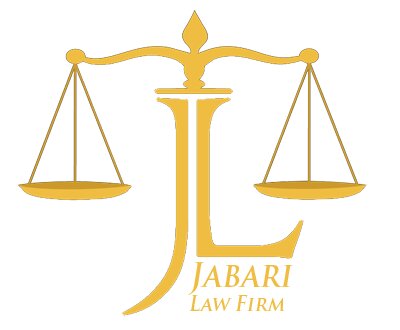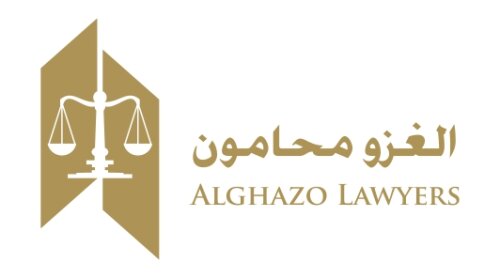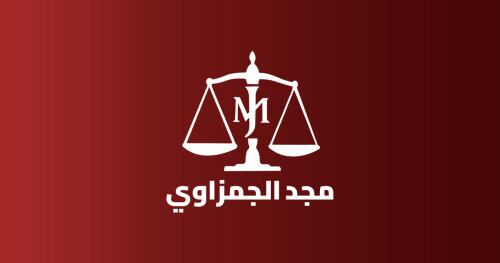Best Collaborative Law Lawyers in Hashemite Kingdom of Jordan
Share your needs with us, get contacted by law firms.
Free. Takes 2 min.
Free Guide to Hiring a Family Lawyer
Or refine your search by selecting a city:
List of the best lawyers in Hashemite Kingdom of Jordan

About Collaborative Law in Hashemite Kingdom of Jordan
Collaborative Law in the Hashemite Kingdom of Jordan is an innovative legal approach designed to resolve disputes amicably outside of court. It emphasizes cooperation between parties and their lawyers to reach mutually beneficial agreements, particularly in family law, business disputes, and civil disagreements. This method is gaining traction due to its focus on constructive dialogue and minimizing adversarial conflict.
Why You May Need a Lawyer
There are several common situations where individuals in Jordan may require legal help in Collaborative Law:
- Divorce or separation where parties seek a peaceful resolution.
- Disputes over child custody or parenting arrangements that need a cooperative approach.
- Business disagreements that parties wish to settle without litigation.
- Property distribution issues among family members or business partners.
- Other civil matters where parties prefer maintaining their relationship post-conflict.
Having a collaborative lawyer can provide the expertise needed to guide the process and ensure that solutions are structurally sound and legally binding.
Local Laws Overview
The Hashemite Kingdom of Jordan incorporates a mix of religious and civil law frameworks, and the adaptation of Collaborative Law also reflects this approach. Key aspects include:
- Recognition of negotiated settlements as legally binding once they are formalized through appropriate documentation.
- Procedures that require all parties involved to disclose all relevant information voluntarily for the process to work effectively.
- Requirement for all parties to agree to resolve their disputes without going to court, unless all parties agree otherwise.
- Collaborative lawyers act as settling facilitators, not as adversaries in a courtroom setting.
Frequently Asked Questions
1. What is the primary goal of Collaborative Law in Jordan?
The primary goal is to resolve disputes amicably through a cooperative approach, keeping the relationships between parties intact while avoiding the adversarial nature of court proceedings.
2. Is Collaborative Law legally recognized in Jordan?
Yes, Collaborative Law is recognized, provided that the settlements reached are documented and meet legal standards.
3. How is Collaborative Law different from mediation?
While both are forms of alternative dispute resolution, Collaborative Law involves lawyers from both sides working cooperatively, whereas mediation is facilitated by a neutral third party helping both sides reach an agreement.
4. Can Collaborative Law be used for business disputes?
Yes, it can be effectively used in business disputes where maintaining business relations is beneficial for all parties involved.
5. Will I still need to go to court after a collaborative agreement is reached?
No, once a collaborative agreement is reached and formalized, it is legally binding without the need for a court appearance.
6. What happens if parties can't agree in Collaborative Law?
If parties can't reach an agreement, they may choose to end the process and explore other options such as mediation or litigation.
7. Are conversations during the Collaborative Law process confidential?
Yes, all discussions, negotiations, and materials used in the collaborative process are confidential and cannot be used in court.
8. How long does the Collaborative Law process take?
The duration varies depending on the complexity of the issues and the willingness of the parties to cooperate, but it is generally quicker than court proceedings.
9. What are the costs involved in Collaborative Law?
Costs can vary, but they are often lower than litigation due to the reduced time and legal resources required.
10. How do I choose a collaborative lawyer in Jordan?
Look for a lawyer with experience in Collaborative Law and a track record of successful negotiations. Consult references and reviews to evaluate their reputation.
Additional Resources
For further assistance, consider reaching out to the following resources:
- The Jordanian Bar Association for referrals to qualified collaborative lawyers.
- The Family Protection Department for guidance on family-related disputes.
- Local legal aid organizations that provide support and advice for those with limited financial resources.
Next Steps
If you need legal assistance in Collaborative Law, consider taking the following steps:
- Identify which area of your life or business requires a collaborative approach.
- Consult with a collaborative lawyer to understand the process specifics and how they apply to your situation.
- Gather any necessary documents and information relevant to your case.
- Engage in the process with a willingness to negotiate and cooperate for the best outcomes for all parties involved.
By understanding Collaborative Law and utilizing the resources available, you can effectively navigate disputes and foster positive resolutions in the Hashemite Kingdom of Jordan.
Lawzana helps you find the best lawyers and law firms in Hashemite Kingdom of Jordan through a curated and pre-screened list of qualified legal professionals. Our platform offers rankings and detailed profiles of attorneys and law firms, allowing you to compare based on practice areas, including Collaborative Law, experience, and client feedback.
Each profile includes a description of the firm's areas of practice, client reviews, team members and partners, year of establishment, spoken languages, office locations, contact information, social media presence, and any published articles or resources. Most firms on our platform speak English and are experienced in both local and international legal matters.
Get a quote from top-rated law firms in Hashemite Kingdom of Jordan — quickly, securely, and without unnecessary hassle.
Disclaimer:
The information provided on this page is for general informational purposes only and does not constitute legal advice. While we strive to ensure the accuracy and relevance of the content, legal information may change over time, and interpretations of the law can vary. You should always consult with a qualified legal professional for advice specific to your situation.
We disclaim all liability for actions taken or not taken based on the content of this page. If you believe any information is incorrect or outdated, please contact us, and we will review and update it where appropriate.
Browse collaborative law law firms by city in Hashemite Kingdom of Jordan
Refine your search by selecting a city.















